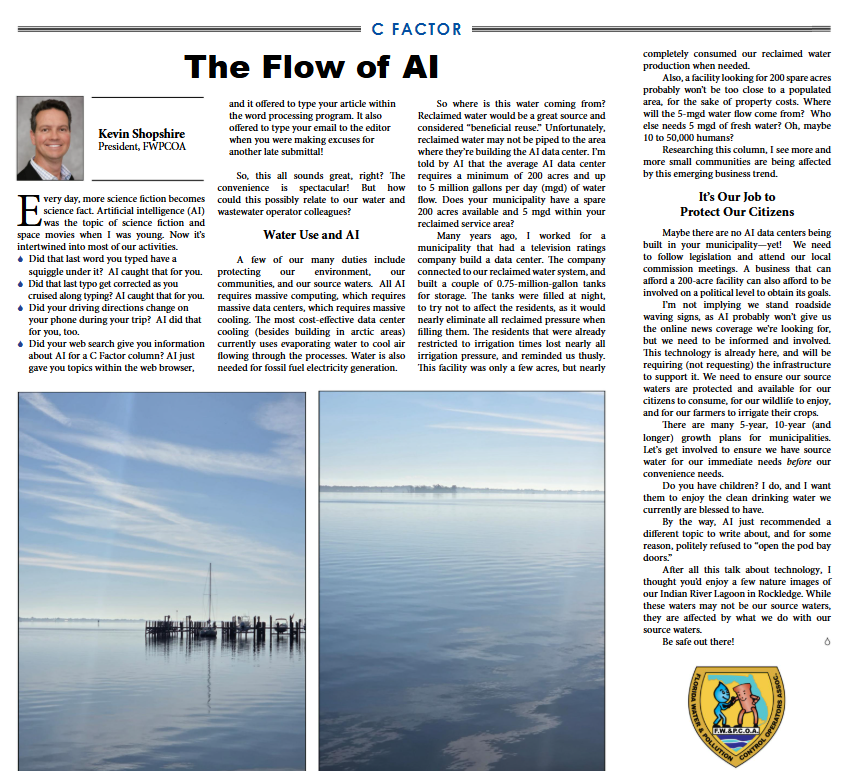
Kevin G. Shropshire
President FW&PCOA

Become a Member Today!
For over 80 years, FW&PCOA has been dedicated to elevating the professional status of water and wastewater operators across Florida. We represent every facet of the utility industry—spanning water treatment, wastewater treatment, water distribution, wastewater collection, stormwater, reclaimed water, backflow prevention and repair, utility management, customer service, utilities maintenance training, and now, direct potable reuse.
As one of the most affordable professional associations, we offer unmatched access to diverse training programs, valuable networking connections, and continuous professional development.
Join us—invest in your future while helping grow and strengthen the Association.